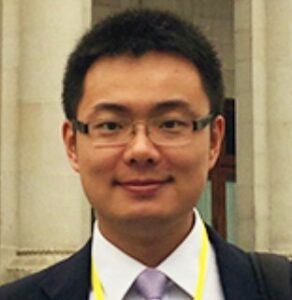How China’s Rising Power Is Transforming Global Leaders
In March 2019, an anonymous Chinese coder used Microsoft’s GitHub collaboration platform to invite discussion about grueling work schedules for Chinese tech workers. The 996.ICU project—996 refers to a work schedule of 9 a.m. to 9 p.m. six days a week, and the ICU to where sick, burned-out coders could find themselves—drew thousands of comments within days.
The attention that the online discussion drew prompted leaders at some of China’s biggest tech companies to defend their relentless work culture. As media outlets reported, Alibaba founder Jack Ma responded that while no company should force employees to work a 996 schedule, long hours are a blessing, and young workers should recognize that happiness comes from hard work. Other leaders ignored requests for comments altogether and responded instead by cutting off employees’ access to the site.
The incident is a prime example of the conflicting forces at play as China’s economy rapidly evolves. Innovative leaders are trying to reinvent China’s business culture to make China-based companies more globally competitive. But the process has not been easy. “Chinese leaders are trying to move up the value chains and they are facing direct competition as they try to go more global,” says Chen Li, assistant professor at the Chinese University of Hong Kong. “It is the basic characterization of China’s changing business environment.”
From Less-Expensive Labor to Global Leader
China’s rapid ascension to economic leadership began in 1979 when the country opened its economy to foreign trade and implemented dramatic free-market reforms. These changes triggered an evolution in the economy, transforming China from a poor and isolated market known mostly for inexpensive goods and labor to an economic powerhouse churning out innovative products across multiple industries that challenge even the most well-recognized Western brands.
China’s rise to power has been historic, Mr. Li says. Before the COVID-19 pandemic, the country had one of the world’s fastest-growing economies, with gross domestic product (GDP) growing at a rate between 6% and 7% each year from 2015 through 2018, after reaching 10% as recently as 2010. The World Bank described it as “the fastest sustained expansion by a major economy in history.” COVID-19 quickly and dramatically halted that growth, with China’s GDP shrinking in the first quarter of 2020 by 6.8%—the first time since 1976 that the country reported an economic contraction. Still, the International Monetary Fund in April predicted that China would ultimately record growth of 1.2% for the year.
Before 2020, China’s rapid growth, coupled with government support for market development, created opportunities for entrepreneurs like Mr. Ma to build wildly successful companies in a relatively short period of time. Mr. Ma co-founded Alibaba in 1999 with $60,000 and a vision for the company to become China’s version of eBay or Amazon. By 2015, the platform was responsible for more than three-quarters of the nation’s online retail sales, and Mr. Ma, a former schoolteacher, was the richest man in China.
But for all of Alibaba’s headline-making success, many Chinese firms with global ambitions still face hurdles to scaling up in such a way that they are able to successfully navigate the world marketplace and position themselves as challengers to Western firms.
Deal-Making Diplomats
In the 20th century’s closing decades, Chinese companies built their business models around providing a low-cost labor force and serving as suppliers to companies in advanced economies. “It is a model upon which many companies built a foundation of success,” Mr. Li says.
However, the changing political landscape, technological advances, rising operational costs and a complex regulatory environment have rendered this model largely obsolete. “Corporate leaders in China today need a different set of skills,” says Anna Holzmann, an analyst at the Mercator Institute for China Studies in Berlin. “They need to be equal parts businessmen, bureaucrats and diplomats.”
Bureaucratic skills are generally in no short supply, particularly among Chinese leaders who built their careers in state-run organizations. “They understand the public institutions and have built relationships” with politicians, regulators and other business leaders, Ms. Holzmann says. They also understand Chinese culture and know-how to navigate the political and economic environment in a way that foreigners may not, she says.
Expertise in areas of global business can be harder to find. Many leaders who grew up in the state-owned business economy may be less accustomed to having to adapt to market forces or to make decisions that drive efficiencies and lead to better profit margins. “These are crucial skills required to run a business abroad,” she says.
“Corporate leaders in China today need a different set of skills. They need to be equal parts businessmen, bureaucrats and diplomats.”—Anna Holzmann, analyst at the Mercator Institute for Chinese Studies in Berlin
Western Training Brings Global Perspective
Chinese business leaders targeting global expansion must embrace a more agile approach to leadership and business development if they want to compete, says Frank T. Gallo, founder of Calypso Consulting, a leadership consulting and executive coaching firm based in Guangzhou, China. Mr. Gallo notes that when he began coaching leaders in China 20 years ago, the business culture was rigid and process-driven. “Leaders had few ideas about Western management, and they focused mostly on how to get more productivity out of people,” he says.
Today, things are very different, says Mr. Gallo. The country’s new value proposition is built largely around rapid innovation and lean business models where leaders prioritize companies’ ability to innovate, pivot quickly and roll out products that meet consumer needs faster than Western competitors do.
“Chinese business leaders have to be nimble and able to make decisions on the fly,” Mr. Gallo says—at least if they are working in the private sector, where delivering quality goods faster and cheaper than global brands factors largely into market success.
Many Chinese entrepreneurs have found that balance by reimagining or upending traditional business mores. Consider Mr. Ma, who retired as chairman of Alibaba in September after 20 years in the role. He has attributed his success in part to being a leader who maintains a customer-first rather than competition-first focus and who emphasizes continuous employee learning and development.
To help realize his vision for Alibaba, Mr. Ma sought out foreign advisers early on and hired Chinese executives who were educated and trained overseas as a way to infuse the company with Western perspectives. Mr. Li points to Joe Tsai, Alibaba’s executive vice chairman, who received a law degree from Yale and who worked in New York and Hong Kong before returning to mainland China to work with Mr. Ma. “[Mr.] Tsai played a crucial role in structuring Alibaba from the very early stages,” Mr. Li says. “He [brought] a global perspective in the background, while Jack Ma knows how to play the Chinese market very well.”
Such “hybridized leadership teams” have proved to be very effective in China’s new economy, Mr. Li says. “Typically the founder has a heavily Chinese market-oriented approach, but second to him are a few senior executives from Western backgrounds … to bridge the gap.”
Tencent founder Pony Ma took a similar approach when he hired Martin Lau away from Goldman Sachs in 2005 to become chief strategy and investment officer of the now $540 billion Chinese social media company. Mr. Lau was educated in the U.S. and worked in Hong Kong before returning to mainland China to join the company. “[Mr. Lau] bridges the gap between Tencent’s internal leadership team and the international markets,” Mr. Li says.
Pony Ma also is well-known for his bold, innovation-focused leadership style, which calls to mind Silicon Valley more so than Beijing. His leadership mantra, “Try bravely, without hesitation,” fueled the creation of Tencent’s wildly popular WeChat app and underlay the company’s early commitment to mobile-first development.
For other firms, founders and CEOs intentionally pursue Western training and education to gain experience and global credibility before launching their firms. One of the most famous examples is Robin Li, founder of Baidu, the $15 billion internet company. Robin Li received his master’s degree from the State University of New York and worked in New Jersey for IDD Information Services, where he invented RankDex, a site-scoring algorithm, before returning to China in 2000 to launch Baidu.
Comments Chen Li: “He is an interesting case because he knows the Chinese market very well, but he worked in the United States for a long time.” That experience, Chen Li indicates, gave him the combination of skills and experience to build a brand that could compete with the likes of Yahoo and Google.
It also offered a model for aspiring Chinese leaders and entrepreneurs who want to follow a similar path. Gaining education and/or training abroad has become a go-to strategy for helping Chinese companies navigate the global landscape, Chen Li says. “Either the founder’s team has extensive experience from the U.S. or from Europe, or they hire someone experienced enough to bridge that gap.”
China’s Formula for Success
A paradox exists, though: Ms. Holzmann notes that while many top leaders in Chinese firms have received education or gained business experience abroad, they are not foreign-born. Share on X “To be a successful leader of a Chinese company, it still helps to be national,” she says.
 Adds Chen Li: “They bring in foreign management to evolve the culture, but those foreign managers face substantial barriers to make it to the C-suite,” he says, noting that South Korea and Japan followed similar strategies as their economies evolved.
Adds Chen Li: “They bring in foreign management to evolve the culture, but those foreign managers face substantial barriers to make it to the C-suite,” he says, noting that South Korea and Japan followed similar strategies as their economies evolved.
The fact that China has been more open than South Korea and Japan were to early foreign investment suggests, however, that Chinese companies may become more open to recruiting foreign leaders to their C-suite as the economy continues to evolve.
Chen Li notes that while the technology and pharmaceutical sectors are leading the evolution, manufacturers in other sectors have been more cautious. “These companies still serve as suppliers to multinationals in the West,” he says. “But they will have to put more resources in innovation and marketing if they want to move up the value chain.”
He is seeing more demand in these sectors for leaders who have specific experience in innovation and marketing, though he expects that talent will be sourced more from adjacent Asian economies where manufacturing for a global audience similarly has grown.
The key for leaders in any Chinese firm with global aspirations, observers say, is to meld elements of a tradition and process-focused Chinese business culture with agility-focused and adaptive Western leadership styles seen especially in the tech sector. A balance of these could give Chinese companies an advantage over their larger Western peers, according to Mr. Gallo.
“The Chinese leaders who have been most successful are nimble and agile and willing to pivot to take advantage of opportunities,” he says.
This article appeared in the Summer 2020 issue of IQ Insigniam Quarterly, with the headline “China’s New C-suite.” To begin receiving IQ, go here.




